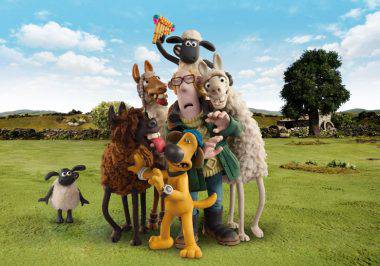How Will Brexit Affect UK Animation Production?
The decision for the United Kingdom to leave the European Union in the recent referendum throws a lot of things up in the air. With a decades old connection with Europe the UK has enjoyed support in many areas including TV and film production. So it seems only right that with Brexit a reality that we assess the situation and try to work out how this will affect animation production in the UK.
Firstly, lets get a scope of the industry in the UK and it’s presence abroad. On average the country employs 4,700 people in the animation industry spread between about 470 companies.
 The UK is a major player when it comes to animated cinema distribution. Between the dates of 2010 and 2014 UK animated films accumulated 53.5 million foreign ticket sales, even though on average it only distributes it’s content to 4.5 territories outside of the UK. If we look at animated releases from the rest of the world shown in the UK, we welcome 31.2 million admissions to our cinemas, this is topped only by cinephiles in Russia, Mexico and the US, so in the continent of Europe, and in the European Union, the UK admits more people into it’s cinemas to watch animation than any other country.
The UK is a major player when it comes to animated cinema distribution. Between the dates of 2010 and 2014 UK animated films accumulated 53.5 million foreign ticket sales, even though on average it only distributes it’s content to 4.5 territories outside of the UK. If we look at animated releases from the rest of the world shown in the UK, we welcome 31.2 million admissions to our cinemas, this is topped only by cinephiles in Russia, Mexico and the US, so in the continent of Europe, and in the European Union, the UK admits more people into it’s cinemas to watch animation than any other country.
Thanks to the tax breaks, the TV industry is relatively healthy too. According to the BFI, 22 animated television programs were produced in the UK between April 2013 and March 2014.
This information comes from the European Audiovisual Observatory’s recently published Mapping the Animation Industry in Europe, which amalgamated the UK and Ireland’s cinema admission data.
The paper does not state how many animated short films are being made. This is a tricky thing to quantify as there seems to be no UK body directly responsible for the promotion and distribution of UK animated short films. Though it is worth noting at this point that the BFI and Arts Council England have been made a series of promises in relation this, more details can be found here.
So how much do we get from the EU? Over on Zippy Frames a survey revealed a list of projects that have received EU money from Creative Europe UK. Here’s a few examples of grants distributed in recent years.
- Hettie Makebeleive – 1973 Films – €500,000
- Bradley and Bee – Red Kite Animation – €356,350
- Toggle Top – Beakus – €254,885
- We’re Going on a Bear Hunt – Lupus Films – €200,000
- Stick Man – Magic Light Pictures – €194,457
- Shaun the Sheep – The Farmer’s Llamas – Aardman – €190,983
 The above list represents TV specials and series created for children and family viewing. Without EU funding some of these projects may not have been made. It’s important to state that there has been no formal indication that EU funding bodies currently supporting UK funded projects will stop, but as there hasn’t been any confirmation that they won’t, so things naturally feel a little uneasy.
The above list represents TV specials and series created for children and family viewing. Without EU funding some of these projects may not have been made. It’s important to state that there has been no formal indication that EU funding bodies currently supporting UK funded projects will stop, but as there hasn’t been any confirmation that they won’t, so things naturally feel a little uneasy.
It’s not just the animation industry that is in trouble at the potential halting of money from the EU. The entire creative industry sector is in flux. According to the Creative Industries Federation (CIF):
“The creative industries were worth £84.1bn to the economy in 2013-2014 and grew by 8.9 per cent – almost double the rate of the economy as a whole. Europe is currently the largest export market for the creative industries, taking 57% of all overseas trade”
So it is clear to see why they are keen to continue the relationship with the EU and why a whopping 96% of the CIF’s members favoured the remain campaign. Looking to the future, John Kampfner, Chief Executive of CIF has stated that:
“It will be vital for all sides to work together to ensure that the interests of our sector on issues including access to funding and talent are safeguarded as the UK forges its new relationship with Europe. The importance of British culture in representing our country to the world will be greater than ever.”
Without EU funding, our animation industry may face a crisis like it has not seen since before the tax breaks were introduced. If we are to continue creating world class animated content for screens of all sizes and remain a major player on the world animation stage we must ensure that the voice of animation in the UK is heard louder and clearer than ever.

